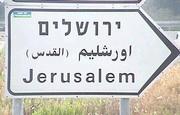Glossary
No, this wasn't really posted in December 2004 -- but this was the most reasonable way I could come up with of creating a linkable glossary without my own server space. So here goes:
aliya - literally, the act of "going up"; used to refer both to the spiritual ascent when one moves to Israel (i.e. "making aliya) as well as the spiritual and often physical ascent to the Torah to make a bracha on a portion of the reading during a service (i.e. having/getting an aliya)
b"H - baruch Hashem - thank G-d (literally, blessed is G-d)
Beit Hamikdash – the Holy Temple
beit midrash - study hall for Torah learning
bracha - blessing
chagim - holidays (singular: chag)
chanukiya - the term used in modern Hebrew (as opposed to halachic literature) for a menora with eight positions for lights, to be used on Chanuka. (plural: chanukiyot)
chatan - groom, man to marry
chazal – acronym for chachameinu zichronam liv’racha; our wise ones of blessed memory
chevruta - study partner, or study session with such a partner
cohen - a priest who served in the Beit Hamikdash or in its predecessor the mishkan (Tabernacle); or, a descendent of the group of families who served in this role.
daven – pray
D'varim - the book of Deuteronomy in the Torah; also, as a common noun, either "things" or the content of someone's speech, in the plural. (In the latter contexts, singular: davar)
Eicha – part of Tanach: the book of Lamentations, read on the 9th of Av, a fast day to mourn numerous tragedies in Jewish history.
eretz hakodesh – the Holy Land
etrog - citron; one of the four species taken together on sukkot
gemara - the records of discourse on the Oral Law (I know that's an insufficient explanation, but I'm not equal to the composition of a better one...)
halacha – Jewish law
Har Habayit - the Temple Mount, on which the Beit Hamikdash stood
Hashem – G-d; literally, "The Name"
hashgacha pratit – personal (Divine) oversight; the concept that Hashem is looking out for every person individually at all times
kashrut - the laws of keeping kosher, or something's status of being kosher
kavana - intention, concentration
kinot - a series of lamentations recited after the book of Eichaon the 9th of Av
koach - strength
kotel - the Western Wall of Har Habayit, built by King Herod
l'havdil – "to differentiate," used when two things are being referred to in an apparent comparison for purposes of illustration, but the writer or speaker wishes to make clear that they are not on an equivalent level to truly be compared
ma'ariv - evening prayer service
masechet - tractate (of mishna or gemara)
Mashiach – Messiah
menora - candelabra, such as that used in the Beit Hamikdash
mensch – a decent, moral, upstanding human being
midrachov - outdoor pedestrian mall
mincha - afternoon prayer service
minhag - custom. Some customs in Jewish tradition are sufficiently strong to almost take on the significance of law.
mirpasot – balconies/terraces/porches (singular: mirpeset
mishloach manot – gifts of food given by one Jew to another on Purim
mishna – the primary assembled text of Oral Law
mitzva – G-d-given commandment (plural: mitzvot)
parasha - weekly Torah portion
pasuk - verse, generally from a book of Tanach
poskim - those who have the authority to make decisions on points of halacha (singular: posek)
rav - rabbi (plural: rabbanim)
rimon - pomegranate; one of the seven species special to the Land of Israel (plural: rimonim)
ruach - spirit
sefer - book; often used specifically to refer to a book of holy Jewish text (plural: s'farim)
shacharit – the morning prayer service
shalom u'vracha - a greeting: "peace and blessing"
Shavuot - literally, "Weeks"; the spring holiday occurring exactly seven weeks after the start of Passover which celebrates our receiving the Torah
shiur – a class, often used specifcally to refer to a class on a religious subject (plural: shiurim)
shloshim - literally, "thirty"; used to refer to the 30-day mourning period following a person's burial
shteebel - (Yiddish) a small room or building used as a synagogue and study hall
shuk – open-air market
shul – synagogue
shvatim – tribes, often used to reference the Twelve Tribes of Israel (singular: shevet)
smicha - rabbinic ordination
sufganiyot – Balls of dough fried in oil, customarily eaten on Chanukah to recall the miracle of the single day's oil in the Beit Hamikdash lasting eight days. In the Western world, they're more commonly known as jelly doughnuts. (singular: sufganiya)
Sukkot – “Feast of the Tabernacles,” a fall harvest holiday, the primary distinction of which is the mitzva to sit (especially to eat) in special huts with trellis-type ceilings made of material grown from the ground (i.e. branches, leaves, stalks). These huts are also called sukkot (singular: sukkah)
Tanach - an acronym for Torah (the five books of the Bible), Nevi'im (the books of the prophets), and Ketuvim (the other holy writings that were canonized together with the above)
t'fila - prayer
trisim – metal slat blinds, generally built into or in front of the window in many Israeli buildings.
t'shuva - repentance; returning (to G-d)
tzedaka - charity (from the word tzedek, meaning righteousness)
z'chut - privilege or merit
z"l - abbreviation for zichrono/na livracha, "may his/her memory be a blessing"


0 Comments:
Post a Comment
<< Home